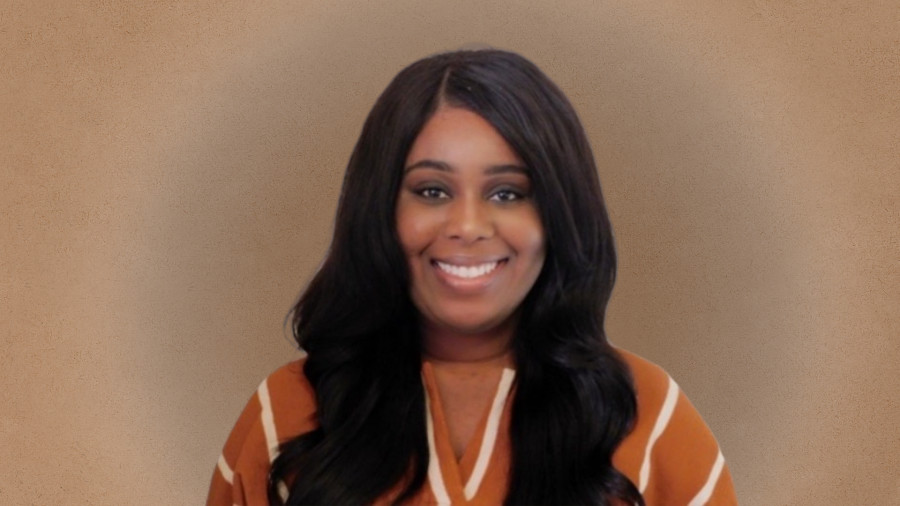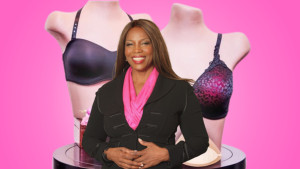“The biggest barrier for Black and racialized women in the Canadian healthcare system is that they feel unwelcome. They don't feel safe enough to be honest about themselves and their feelings,” says Elsie Amoako, CEO and founder of Mommy Monitor.
As a Black Canadian researcher and advocate for maternal health, Amoako has spent her career committed to solving health disparities and inequities in the Canadian maternal health care system. In 2017, she established Mommy Monitor, a maternal care service that provides free, customized, and culturally safe service and education mainly aimed at Black and racialized women. Mommy Monitor is also part of the Google Startup Accelerator, Microsoft Social Impact Accelerators and 1863 Ventures.
Hurdles facing Black mothers
Pregnancy, labour, birth and raising kids have never been easy for mothers. For Black Canadian mothers, however, it's a challenge compounded by the healthcare system's discriminatory and unsupportive practices. A study found that 8.9% of infants born to Black women in Canada were pre-term compared to only 5.9% of infants born to white women [1]. In addition, Black mothers tend to have shorter pregnancies, leaving them at a higher risk of having a pre-term birth [2] and receiving lower-quality care. Another shocking statistic is that Black infants are up to 3 times more likely to die when cared for by white doctors [3]. According to Health Canada, many healthcare providers overlook Black women’s pain during delivery which goes all the way back to a racist study by Dr. J. Marion Sims, which says Black people can endure more hardship than whites [2]. “We’ve heard stories about Black women who would be out of care after giving birth and would die from their experience because their complications weren't dealt with properly,” says Amoako, adding, “the number of Black infants in the NICU is an indication that the person who birthed them may be dealing with health complications.” Another primary issue for Black mothers giving birth is that they have limited child care and support. New immigrants more often have this problem, of being isolated from a support network. Amoako argues that it’s possible to improve health outcomes for pregnant Black women by providing customized care and support.
Pulling back the curtain
Amoako was first introduced to the unique challenges of Black and racialized women in Canadian maternal care while conducting academic research for her Master’s at the University of Toronto. The study focused on the first experience of African, Caribbean, and Latino women with prenatal services in Ontario. Her research shows a surprising contrast between women’s experiences: they either hated their experience or loved it. As Amoako dug deeper, she realized that most women had a poor experience. But most people were happy with the care they received because they came from countries with a low quality of care. “This is why many women didn’t complain because whatever care they received was a huge upgrade compared to what they got in their home countries. They never realized that they deserved much better than what the system was offering,” Amoako explains. Amoako’s research recommendations include increasing monitoring and providing more culturally safe care for women. It was the culmination of her research that birthed Mommy Monitor.
Raising awareness
Amoako further explored this issue by talking to nurses and doctors and discovered that Black mothers' experiences, identity, and culture are all tied to how they receive healthcare. “They will continue to have bad experiences if the healthcare system fails to provide a more tailored service. There is a need to raise more awareness in the healthcare system and put power back into the hands of the patients so they can have more autonomy over their health. Healthcare policies in Canada are also not structured to focus on postpartum or reproductive health. Worse still, the issue of Black maternal health is not on the agenda for policymakers. The only way to influence policy is to provide more data. But there is no disaggregated clean data on the experience of Black mothers in the Canadian healthcare system that can provide definitive proof to policymakers. Amoako says there are a few Canadian studies exploring this problem, some qualitative, but only a few are quantitative. The studies are primarily focused on geography and not race. As a result, they make blanket statements about people who live in a specific area and erroneously assume they all had similar experiences. However, Amoako acknowledges that many more researchers are now exploring this topic.
A culturally safe space for maternal healthcare
Amoako established Mommy Monitor to support Black and racialized mothers and reduce adverse health outcomes. Mommy Monitor aims to identify each patient as a person and find healthcare services and social services that are tailored to their needs. “Mommy Monitor is a culturally safe space where we can monitor mothers’ health and needs and support them. Your outcomes are likely to be positive if your experiences are positive,” she says. Amoako defines culturally safe care as a respectful environment that addresses the power imbalances within the healthcare system. “We're creating a space that's free of racism and discrimination and identifies the historical link to systemic and institutional racism. At Mommy Monitor, users can feel comfortable enough to be themselves. We pay attention to their problems and listen to their needs. This is how you create culturally safe care,” says Amoako. Mommy Monitor provides a wide range of free, customized, and culturally safe healthcare services. In addition, patients have access to culturally safe healthcare professionals and other resources, such as interpretation services and doulas. Mommy Monitor serves people at different stages in their maternal healthcare journey, including preconception, prenatal, and postnatal. At the time of writing, Mommy Monitor functions through their website. Users can fill out the intake form on the website or visit the site’s maternal health section and make an appointment with a health care practitioner. The Mommy Monitor app launches May 2023 and will have both web and a mobile interface so that it’s convenient for all users.
Additional activities include: - Racialized maternal health conference: This is a space for different healthcare practitioners from all backgrounds, including government workers, researchers in public health, academicians, parents, policymakers, students, and anyone interested in perinatal health for Black and other racialized people. The conference allows them to share their work and collaborate with others to create more extensive dialogues that can change the future.
- Knowledge and education: This includes in-house research, resource development, health promotion, and training for health professionals and organizations.
- Birth justice workshop: This monthly workshop focuses on teaching Black parents and other racialized parents about their rights as they navigate through the healthcare system. The workshop covers the necessary preconception, pregnancy, labour, childbirth, and postpartum knowledge so that parents can understand their power within the healthcare system and make well-informed decisions.
Mommy Monitor’s services are designed to be easily accessible, with 80% virtual and 20% in-person appointments. Amoako believes that virtual services can alleviate a lot of stress on the healthcare system and reduce the barriers facing the population, allowing them to access services when it’s convenient for them.
Moving the needle
“Healthcare institutions come to us now,” says Amoako, who believes in Mommy Monitor’s ability to close the gap in Canadian pre-and post-natal healthcare. “They are happy to send their high-risk and low-risk patients to us. And we make sure that their experiences and outcomes are both improved. We’re doing what the healthcare system can’t do.” Many Black mothers who have used Mommy Monitor say their lives have been changed and are grateful for their experiences. Below is a testimonial from one of their satisfied service users:
I want to express my sincere gratitude to you for the doula support I received through Jessica. You helped me through a difficult time while my mother's visa was delayed! Thank you so much for supporting me when I needed help the most. I honestly do not know what I would have done without your support. Please continue the good work!
Feathers in their cap
Mommy Monitor has received many accolades and rewards in recognition of their work, including funds for their work, including:
- The Centre of Social Innovation Agent of change award
- WeWork Creators award
- Startup Canadas Women's Founders Award
- Women Leaders in Digital Health Canada award
- Accelerators include Next36, Google Start Up for Black Founders, Health Innovation Hub, 1863 Ventures, UTEST, Microsoft Entrepreneurship for Positive Impact, and others
What’s next?
To influence policy, Mommy Monitor is building a case that they can share with the government on improving the healthcare system to influence policy. Besides this, Mommy Monitor is engaging with Google Canada and conversing with them to determine how to improve health equity throughout Canada. Finally, Amoako advises Black women to value their lives, never feel scared, and not wait until the last minute to see a healthcare professional. She wants them to know that services like Mommy Monitor are willing to support them in their journey to become healthier and happier.

 By
By 








